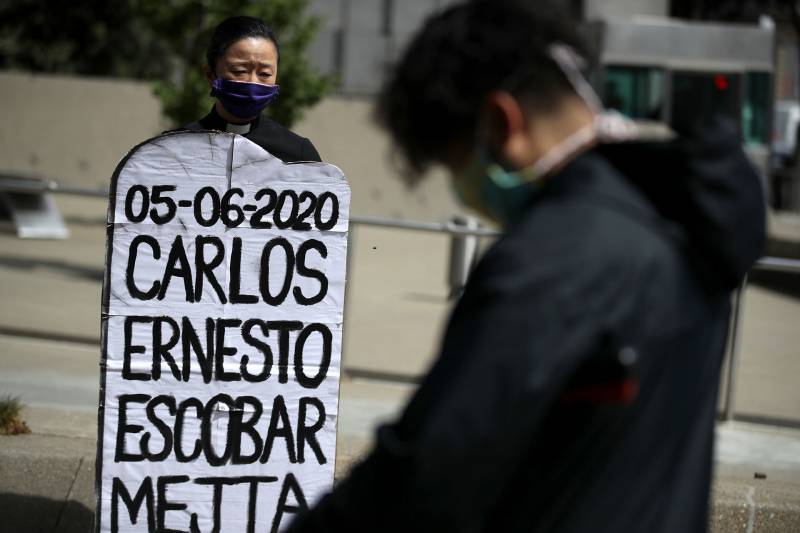The California Department of Public Health confirmed to KQED that the vaccine eligibility expansion includes ICE detainees.
Advocates who campaigned since last winter for California officials to include detained immigrants in vaccination plans welcomed the change.
“We feel that this is a very long overdue inclusion of immigrants in detention in the state’s plan,” said Jackie Gonzalez, policy director for Immigrant Defense Advocates. “And what we would like to see is clear guidance for how local public health departments should roll out the vaccine.”
The coronavirus has swept through all seven detention centers in California, infecting more than 600 people held in the facilities since the pandemic began. More than a dozen detainees diagnosed with COVID-19 are currently in isolation or being monitored, according to ICE figures.
The nationwide average daily population in detention centers has dropped dramatically from nearly 40,000 a year ago, to about 14,000 last month. The decrease is due in part to Trump administration policies that essentially closed down the border to asylum seekers, as well as court orders forcing ICE to release detainees to allow for social distancing during the pandemic inside facilities.
ICE detention centers should work with local health jurisdictions to get allocations of doses and arrange vaccinations, said Dr. Mark Ghaly, secretary of the California Health and Human Services Agency, during a call with reporters last week. “The exact approach is going to be provider specific.”
